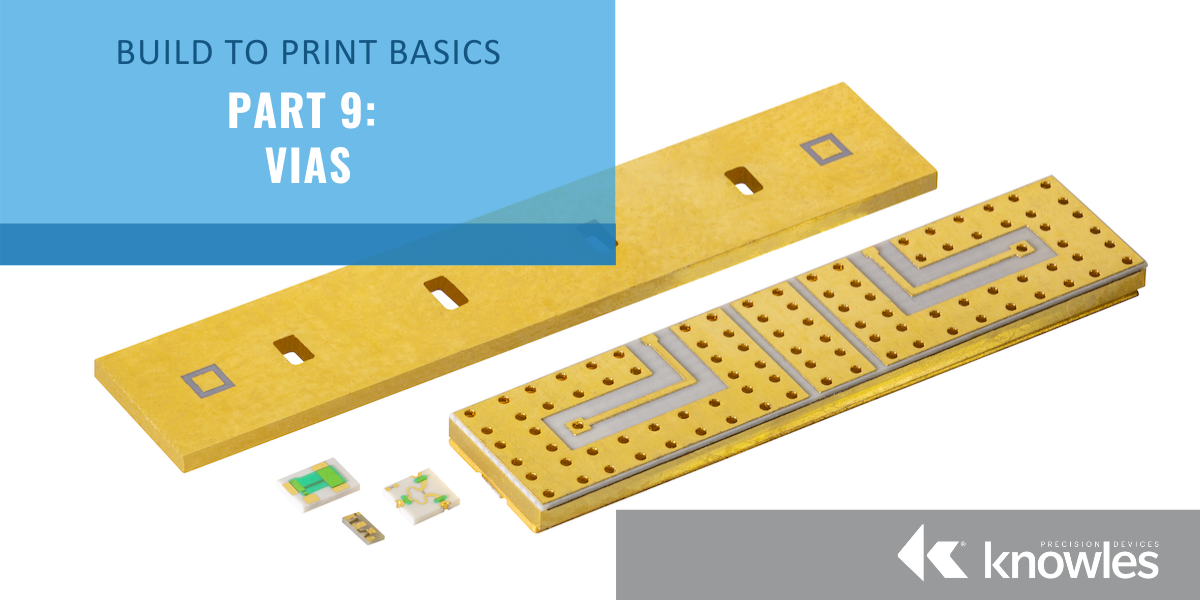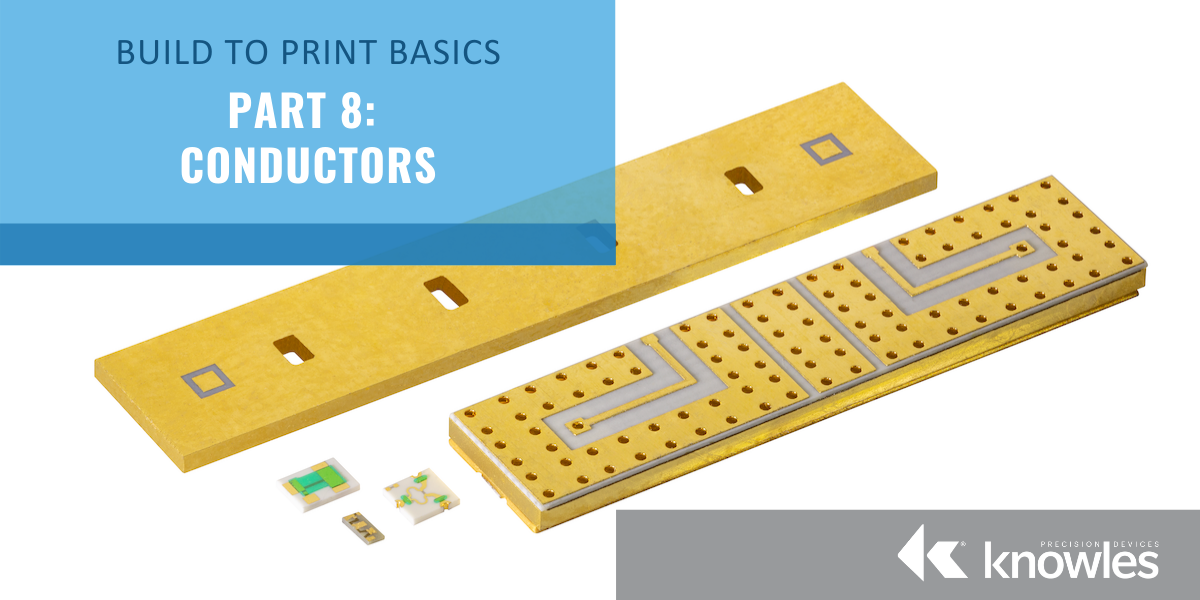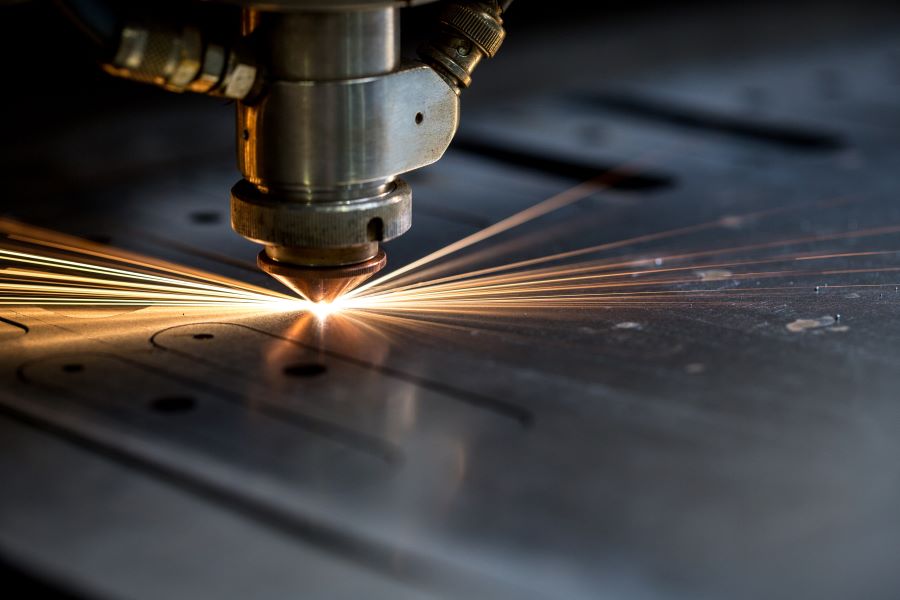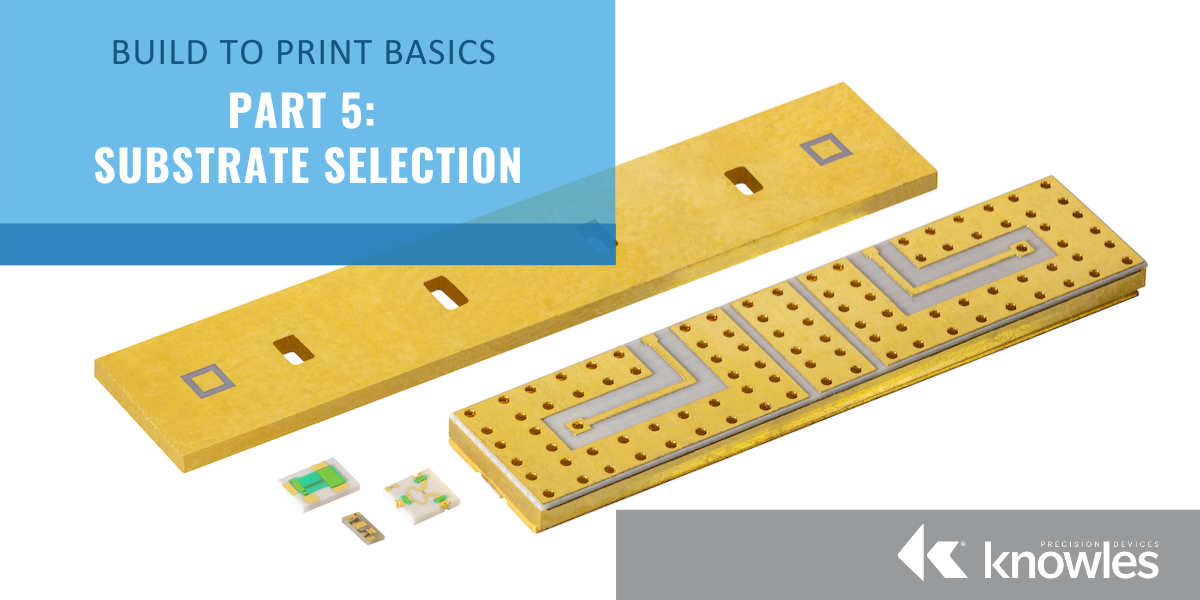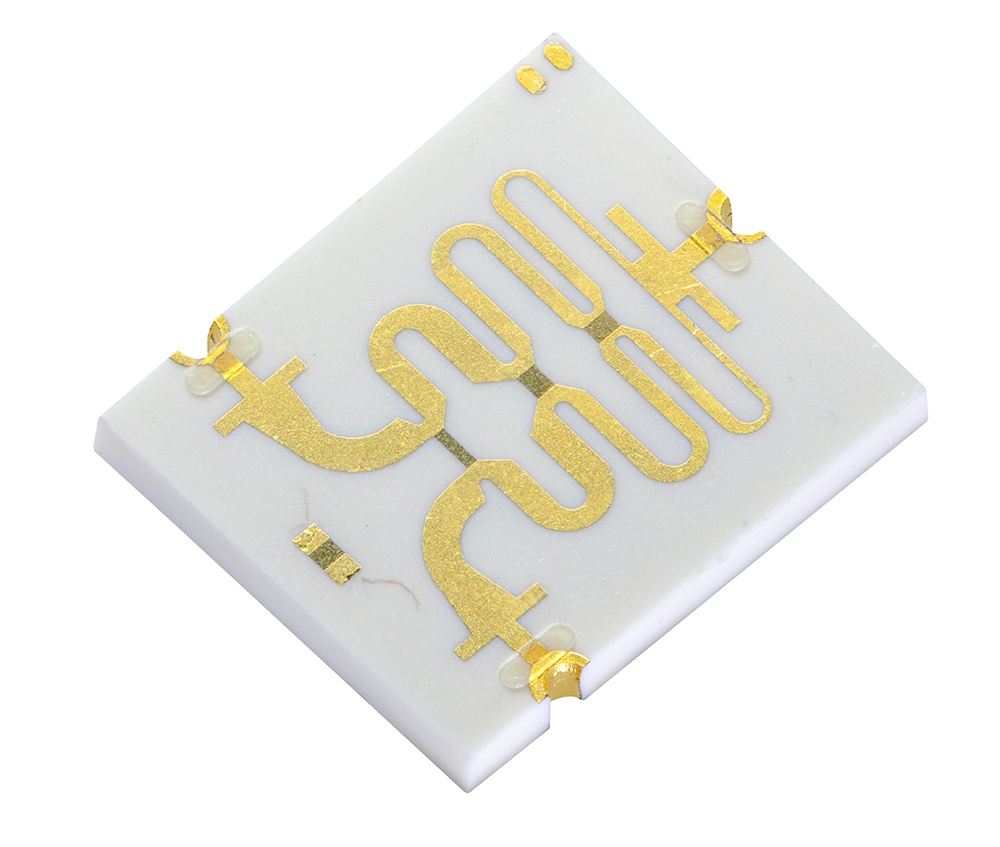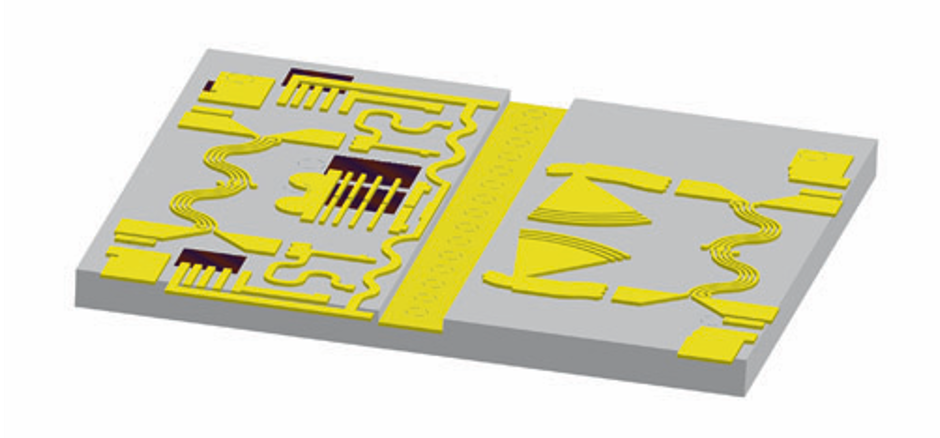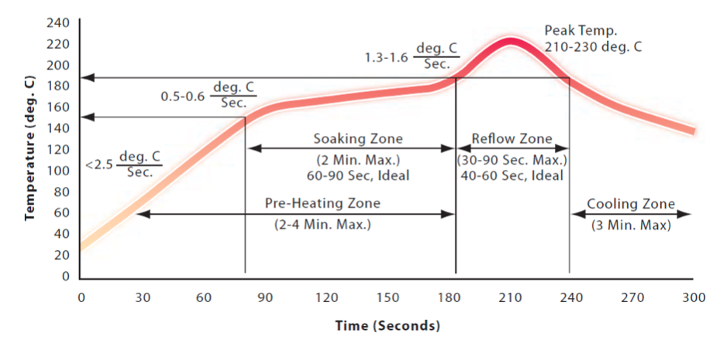To provide a better understanding of build-to-print in general and the breadth of our offerings, as well as how our thin-film technology can benefit your applications, we’ve put together a Build-to-Print Basics series. Part 9 covers the various strategies that can be used for adding vias into circuits.
To provide a better understanding of build-to-print in general and the breadth of our offerings, as well as how our thin-film technology can benefit your applications, we’ve put together a Build-to-Print Basics series. Part 8 provides basic and multilayer conductor guidelines as well as information on fine line conductor features.
Topics: Build to Print
From the C Band to the V Band: A Year of Big RF Spectrum Changes in the US
Looking back, 2020 was a year full of big changes regarding how RF spectrum is allocated in the US. Led by the Federal Communications Commission (FCC), multiple portions of the spectrum ranging from the C band to the V band were either opened to new uses and/or auctioned to new users throughout the year. These changes are driving a variety of new opportunities for wireless device manufacturers and broadband and cellular carriers, which is resulting in a range of exciting new challenges for RF technology vendors to help solve.
Topics: 5G, News and Events, RF and Microwave
To provide a better understanding of build-to-print in general and the breadth of our offerings, as well as how our thin-film technology can benefit your applications, we’ve put together a Build-to-Print Basics series. Part 7 covers how we use in-house laser machining, laser trimming, and other laser cutting techniques to build high-precision thin-film components.
Topics: Build to Print
To provide a better understanding of build-to-print in general and the breadth of our offerings, as well as how our thin-film technology can benefit your applications, we’ve put together a Build-to-Print Basics series. Part 6 covers the various aspects of metallization that we consider to determine the best fit for our customer’s build-to-print applications.
Topics: RF and Microwave
To provide a better understanding of build-to-print in general and the breadth of our offerings, as well as how our thin-film technology can benefit your applications, we’ve put together a Build-to-Print Basics series. Part 5 provides an overview of the common and custom materials we typically use and information on how we can work together to determine the best option for your application.
Topics: RF and Microwave
At mmWave Frequencies, Surface Mount Components Are Key to Reducing Cost
Frequencies in the mmWave spectrum play a key role in 5G communications. RF technology that was developed around existing mmWave applications has evolved to encompass the needs of 5G wireless access and components for such systems need to be selected for performance and cost. Commercial systems are subject to intense price pressure, making both the purchase cost and the implementation cost of a component important factors in selecting devices for a new design. Another key consideration is likely size constraints and the need to preserve valuable board space.
Topics: RF and Microwave
Build-to-Print Basics Part 4: The Knowles Precision Devices Build-to-Print Process
To provide a better understanding of build-to-print in general and the breadth of our offerings, as well as how our thin-film technology can benefit your applications, we’ve put together a Build-to-Print Basics series. Part 4 provides an overview of our process and the topics our applications engineers review with clients to kick-off any build-to-print project.
Topics: Capacitor, RF and Microwave, High Reliability
Recommendations for Improvement: Passive RF Mounting and PCB Integration
To ensure Knowles Precision Devices (KPD) customers achieve optimal performance and are successful with our products, we have compiled a number of techniques to mitigate PCB variation and reduce the unwanted effects of microstrip technology (e.g. cross talk and radiation).
Topics: RF and Microwave
The Future of Satellite Communication Design: Four RF Technology Trends You Need to Know
Over the last four decades, the number of devices that need to maintain mission-critical satellite communications (satcom) has rapidly grown. At the same time, the information transmitted on these devices has become increasingly more complex. As a result, the RF circuit building blocks that make up satcom technology have been through many changes to accommodate the latest advancements in the industry including miniaturization, increased reliability, and the ability to rapidly transmit more complex data.
Let’s explore the following four RF design trends we’ve identified based on our 40-years of expertise in the RF industry that are helping satcom design engineers meet the demands of the many industries relying on their devices today.
Topics: RF and Microwave, Military and Aerospace

